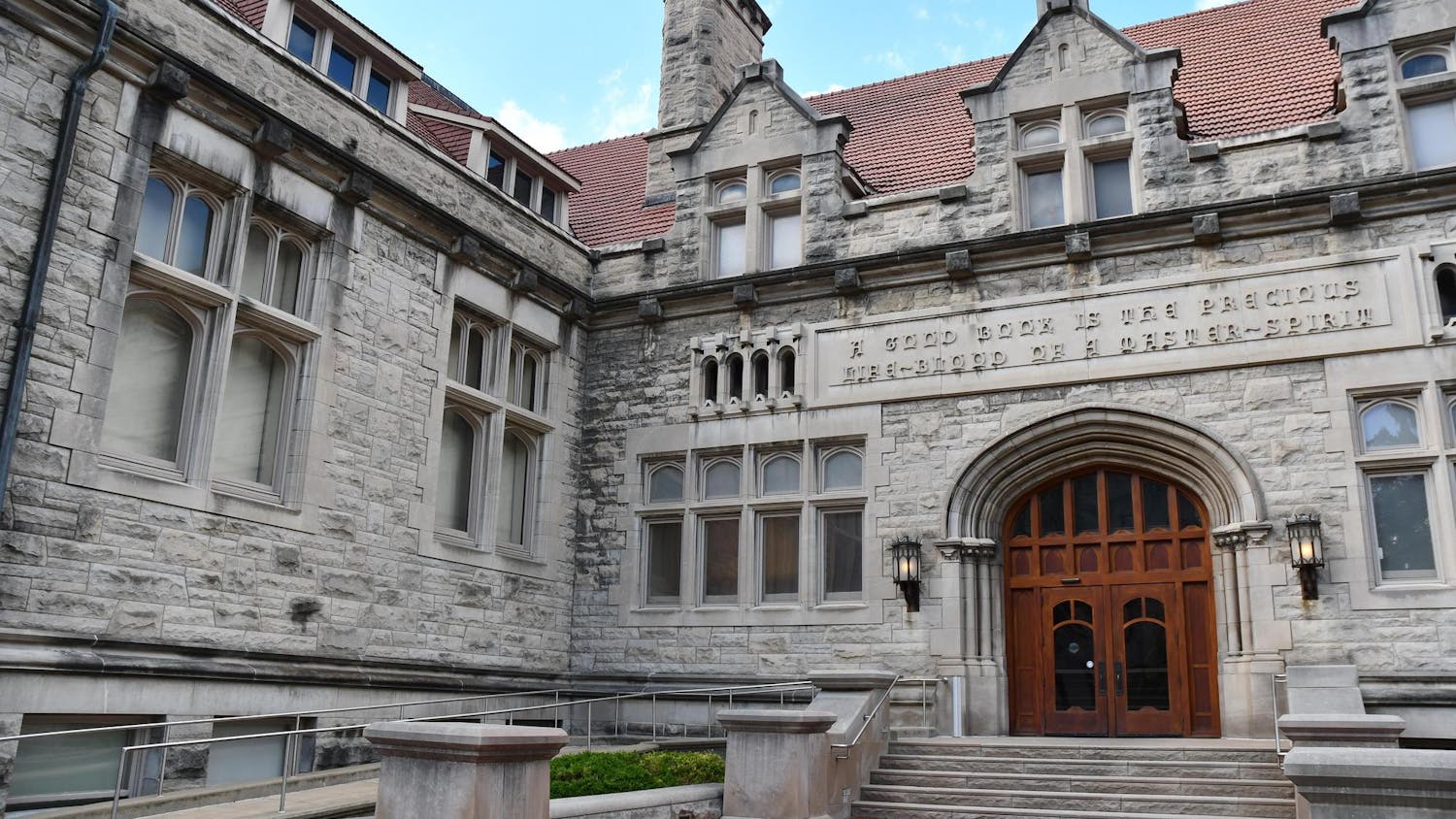The Bloomington Faculty Council special meeting Tuesday was the main opportunity for Provost Lauren Robel to outline the Strategic Plan and address questions faculty had regarding it.
She said she hoped to clarify the most frequently asked questions she had received since the plan was released.
Robel made clear the distinction between the campus and the faculty.
“When I talk about the campus, I’m talking about the resources and the services that I am directly responsible for, but not the schools,” she said. “The deans and the faculty are responsible for the academic programs in the schools and the departments.”
Robel said the Strategic Plan “charts a vision for the academic aspects of the campus along a reasonable time horizon.”
It must be specific to this place, account for trends and environment, be focused in order to guide activity at the campus level and flexible enough to allow for changing conditions, she said.
“This is not a plan for your school,” she said, addressing the faculty council. “This is not a plan for your department. This is a plan occupying a different territory than that.”
In the fall, 11 teams, consisting of 167 students, faculty and staff, created the plan. So far this spring, Robel has met with deans and school policy committees.
She is working through constituency meetings.
“I want to start with an approach to this that is an approach of abundance, not scarcity,” she said. “That’s the way we have to operate because I think if our ideas are good enough, they will be funded. I’m confident of it.”
Not only BFC members, but all faculty were able to ask any questions they had about the Strategic Plan.
Bob Kravchuk, professor and director of the masters of public affairs and online MPA, said though the Strategic Plan doesn’t include budgetary implications at this stage, he is asked about the financial pressure the Strategic Plan will have on the campus in the next 10 years.
“I know that you didn’t consider the budgetary implications of any of this at this stage and that is as it should be,” he said.
“But I’m wondering if we shouldn’t be talking at some point about the leveraging of information technology to reduce the marginal cost of delivering education on a proceed basis.”
In response, Robel admitted the plan creates many financial pressures on the campus. She said they are limited in increasing tuition and expanding the student body.
Faculty members went on to question how the financial hitches of the plan may stand in the way of academic initiatives.
Robel said no matter what there will be tradeoffs.
“In one way, shape or form you’re always at some point along the continuum from centralization to decentralization,” she said. “It’s the movement that is actually
important.”
Robel said if they make the compelling educational and research ideas laid out in the Strategic Plan sound worthwhile they will be able to get them funded.
They have to make the university believe in the plan, she said.
“How can we sharpen this idea to make it so compelling that the University wants to put the resources into it?” she said. “This is the process for that, we have to want it.
We can’t want it if everything we say and every way we come at a problem is that it’s a zero sum gain. We can’t advance as a University that way. It’s not who we are.”
Provost Robel discusses Strategic Plan with Bloomington Faculty Council
Get stories like this in your inbox
Subscribe





